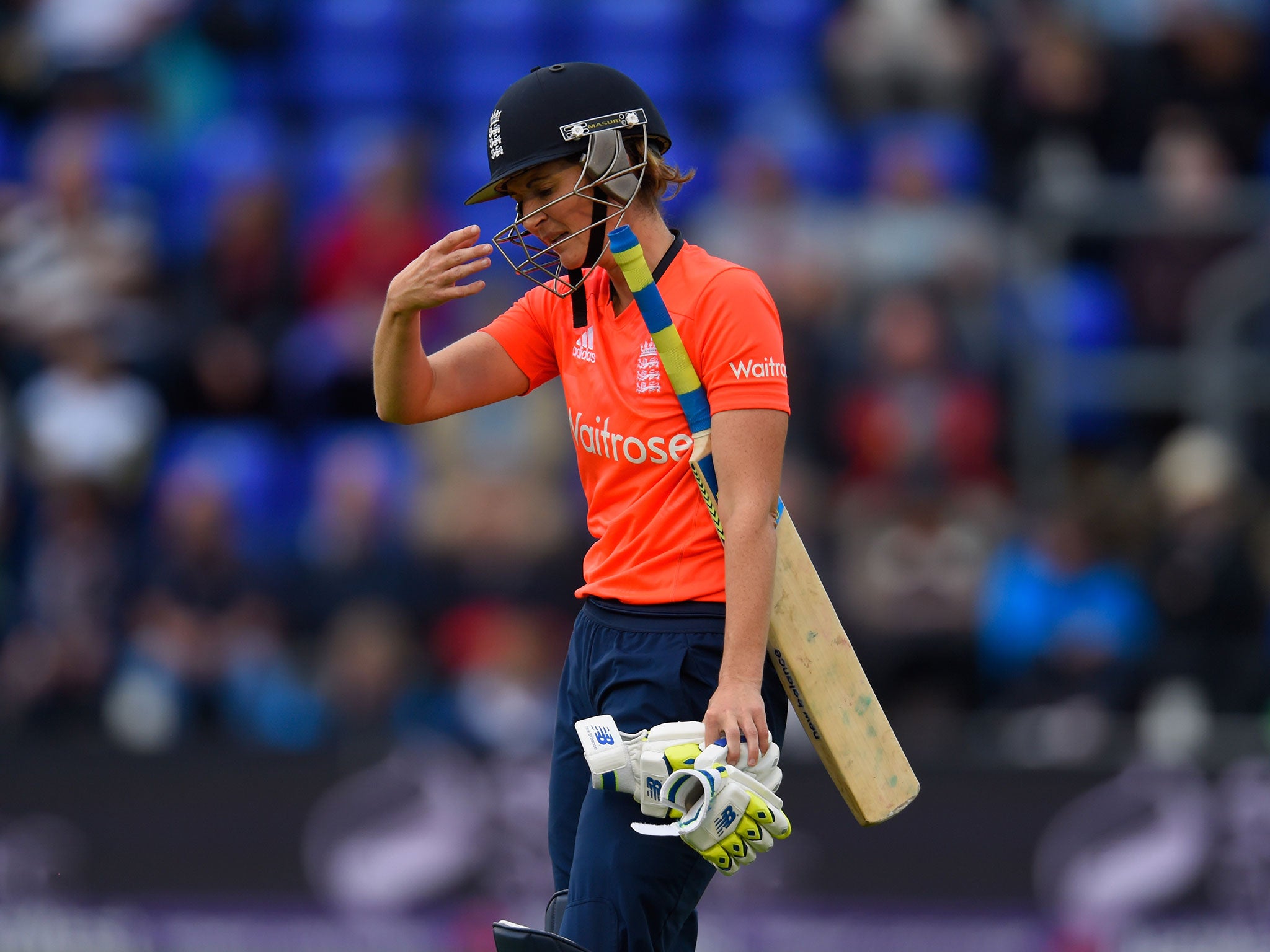Women's cricket: Time for Charlotte Edwards to stand down as England captain
As a captain, England now probably need a younger player

England have played 481 matches since women’s internationals started in Brisbane in 1935. Charlotte Edwards has played in 298 of them, 209 as captain. It has been a magnificent sporting career by any lights, spanning all three formats of the game.
In Tests, where Edwards’ international career began in 1996, in one-day internationals and in Twenty20 she has distinguished herself. She has come to terms with the rapidly changing nature of the women’s game and managed to up the ante in T20, where the heart of it now lies.
Edwards has scored more runs in limited-overs internationals than anyone else and only one player, the formidably stylish Janette Brittin, has made more Test runs. She owes English cricket nothing and it was perfectly fitting that she should be leading the team during the recent seasons of transition.
Women’s cricket is becoming a fully fledged professional sport and quite as importantly it is spreading as a recreational game. Edwards’ profile as stellar and passionate performer has been crucial to this progress.
She has been captain of England for 10 years. It is not too much of a stretch to say that more people could name her as a cricketer than they could around half of the England men’s team. Without at all aspiring to it she has become almost untouchable as the captain, so that it is almost heretical to suggest that it should not be her job as long as she wants it.
But the time has come when Edwards, the blessed Charlotte in this quarter, must think seriously of letting somebody else have a go. No, more than that, she should step aside as England captain.
England have had a difficult summer. They have lost the Ashes for the first time in the multiformat competition in which one-day internationals, T20s and one Test match all count towards the ultimate prize. Two points are awarded for a victory in the limited-overs games, four for a win in the Test.
It was the brainchild of Clare Connor, Edwards’ predecessor as captain, and herself a vital driver of the game as director of women’s cricket at the ECB and constant proponent of the game’s virtues, and it has revitalised the Ashes.
Australia have been dominant, playing an athletic, attacking, though far from flawless, brand of cricket which at times has overwhelmed England. The Ashes had been decided before the final T20 match in Cardiff yesterday.
It has seemed to mark a natural shift. At 35, Edwards still has plenty to offer as a batsman, though she has fallen well short of her own exalted standards this summer. As a captain, however, England now probably need a younger player who is more at home with the rhythms of the new, modern women’s game and may indeed have ideas about how its rapid progress can be accelerated still further.
England have too often looked off the pace, Edwards has too often seemed to be leading according to a preordained plan. If that is a harsh judgement to pass on such an iconic and revered figure it is made after a degree of soul searching about what to do for the best.
Edwards is not of a mind to go. After the Ashes were surrendered in a hopelessly inadequate run chase at Hove the other night she said: “I feel I have a lot to contribute to this team. This is not the time to walk away from English cricket. I don’t think one bad series defines me as a player or captain.”
Nor does it, Lotty, but it may be that a fresh pair of eyes with a different tactical approach could lend a different, energised perspective. The good of the game at large is at stake and it may give her a few more years as a player should she want them.
This has been creeping up on England for a while. It is not only these Ashes. In the last two World T20 finals they have been comfortably beaten by Australia. In the 2013 World Cup they mucked up a group match against Sri Lanka and were always struggling thereafter. England’s last world title was at home in the T20 of 2009.
England and women’s cricket have come a long, long way since Myrtle Maclagan virtually won the first Test all on her own 80 years ago, scoring 72 and taking 7 for 10 with her off-breaks as Australia were defeated by nine wickets. The contribution of Edwards to the standing of a sport that Maclagan and her mates would struggle to recognise cannot be overstated. But the unthinkable has to be thought and soon.
Join our commenting forum
Join thought-provoking conversations, follow other Independent readers and see their replies
Comments
Bookmark popover
Removed from bookmarks